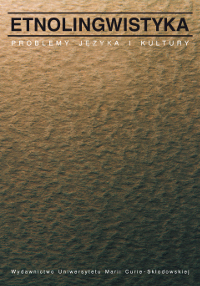Mateřský jazyk jako domov v řeči. K opozici vlastní – cizí v obrazu mateřského jazyka v češtině
Mother Tongue as a Homeland in Language (On the opposition “own --- foreign” in the image of mother tongue in Czech)
Author(s): Irena VaňkováSubject(s): Language studies, Language and Literature Studies, Applied Linguistics, Cognitive linguistics
Published by: Wydawnictwo Naukowe Uniwersytetu Marii Curie-Sklodowskiej
Keywords: native language; home/house; homeland; homeland of signs; linguistic homeland; us vs. them; linguistic worldview; connotation; denotation; Czech
Summary/Abstract: Proceeding from Heidegger's concept of home and residence this study is concerned with mother tongue as home. The basic perspective is provided by the opposition of “own and foreign” in the Czech linguistic picture of the world. From it arise also the connotational centres connected with (home and) mother tongue that are progressively examined: mother, family, memories of childhood and homeland (as against “foreign lands”), comprehensibility, simplicity and naturalness (as against “foreignness, foreign language”), accentuation of corporeality, sensuality and emotionality of the experience in the mother tongue (linked to this is also an emphasis on connotations as against an [only] demonstrative character of denomination in a foreign language). These semantic aspects are linguistically and culturally anchored in the concept of Czech as mother tongue and play a significant role also in the concept of homeland in the Czech picture of the world (as shown in particular in artistic texts). Corresponding with this is the concept of homeland in “the homeland of signs, the linguistic homeland” in the concept of the Czech national revival, as formulated by the Czech literary historian Vladimír Macura.
Journal: Etnolingwistyka. Problemy Języka I Kultury
- Issue Year: 20/2008
- Issue No: 20
- Page Range: 107-122
- Page Count: 16
- Language: Czech

